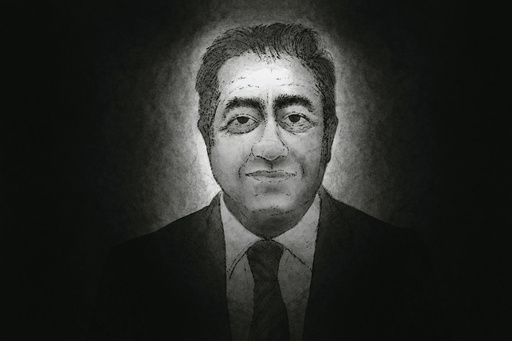
When representatives from close to 200 nations and numerous journalists gather in Azerbaijan in November for COP29, the U.N. climate conference, they will impose a level of scrutiny that the host country may not be used to—especially given its track record.
Azerbaijan has faced criticism for its human rights practices over the years, with the government frequently targeting journalists, activists, and independent political figures. Human rights organizations have accused President Ilham Aliyev and his administration of intensifying a crackdown on free speech in the lead-up to the climate summit, directing particular scrutiny at climate activists and media professionals.
Aliyev’s father, Haidar, governed Azerbaijan from 1993 until his death in 2003, after which Ilham took power. Both administrations have suppressed dissent while the nation of nearly 10 million on the Caspian Sea benefited from expanding oil and gas wealth.
Elections since the country gained independence from the Soviet Union in the 1990s have not been deemed fully democratic. The Organization for Security and Cooperation in Europe described Azerbaijan’s latest parliamentary elections, held in September, as occurring in a “restrictive” atmosphere, where voter turnout was merely 37%, and no opposition parties secured seats.
Human Rights Watch has reported a significant escalation in the crackdown against journalists and human rights defenders over the past two years, marked by unjust criminal charges against critics and stringent laws that hinder the activities of media and activists.
In anticipation of COP29, authorities in Azerbaijan have extended pretrial detentions of at least 11 journalists linked to the country’s remaining independent news outlets, accusing them of currency smuggling related to purported funding from Western sources.
Azerbaijani government representatives have not responded to multiple requests for interviews or comments regarding these actions.
An overview of just five prominent critics currently imprisoned in Azerbaijan sheds light on the situation:
**Ulvi Hasanli and Sevinj Vagifgizi**
Hasanli and Vagifgizi are journalists leading Abzas Media, an independent online platform that has reported on protests and pollution at a gold mine in western Azerbaijan, reconstruction efforts in Karabakh, and corruption among high-ranking officials.
In November 2023, both were arrested, with authorities alleging they conspired to smuggle funds into Azerbaijan and claiming to have discovered over $40,000 at Hasanli’s residence. The journalists reject these allegations, suggesting the money was planted.
Guliyeva, Hasanli’s wife, stated, “That is why they decided to eliminate Ulvi and his team… to ensure they could no longer expose their misconduct.” Both journalists remain imprisoned in Baku with no scheduled trial dates. Conditions in detention, according to Guliyeva, are “extremely bad.” She has noted that her husband displayed signs of bruising and that visits and communication are monitored. Although he can see his two-year-old daughter briefly, it takes an emotional toll when she leaves, Guliyeva expressed.
Vagifgizi’s mother, Ophelya Maharramova, reported that prisoners face water shortages and unhealthy conditions, leading to significant health issues. Despite being imprisoned, Vagifgizi remains curious about Abzas Media’s output, which she finds motivating, her mother said. Guliyeva also called for a boycott of COP29 due to Azerbaijan’s human rights violations.
**Gubad Ibadoghlu**
Ibadoghlu, an academic and economist associated with the London School of Economics, was detained in Azerbaijan in July 2023. He was placed under house arrest in April after several months in prison.
Azerbaijan has accused him of selling counterfeit currency, a claim his children dispute, arguing that his investigation into corruption in the oil and gas sector, as well as his opposition affiliations, made him a target. Ibadoghlu has also attempted to establish a charitable organization in the UK aimed at assisting the Azerbaijani populace using forfeited funds from wealthy nationals.
As chairman of the Azerbaijan Democracy and Prosperity Movement, which has been denied political party registration, he faces no trial date yet. His family believes the government is delaying this process to avoid negative visibility prior to the climate summit. Emin Bayramov, his son, claimed, “Hosting COP29 while suppressing speech brings shame on the international community.”
**Anar Mammadli**
Mammadli, a human rights and climate activist, was forcibly taken away by masked individuals while on route to collect his child from nursery in Baku back in April. Facing accusations of smuggling and trying to illegally transfer funds, he maintains his innocence.
He leads an election monitoring initiative and was part of the founding group for the Climate of Justice Initiative in Azerbaijan. An open letter signed by various organizations condemned Azerbaijan for its lack of comprehensive efforts in monitoring and reducing greenhouse gas emissions alongside increasing pollution from oil production.
Human Rights Watch has recognized Mammadli as a pivotal defender of human rights, advocating for the release of political prisoners and an improved legal landscape for activists. Previously sentenced to five and a half years on spurious charges related to tax evasion and other allegations, he was pardoned in 2016 after receiving international acknowledgment, including the Vaclav Havel Human Rights Prize. Currently, Mammadli waits for his trial date.
**Akif Gurbanov**
Chairman of the Institute for Democratic Initiatives, Gurbanov aims to promote an open society through educational programs like training young journalists, human rights defenders, and economists. He was taken into custody in March following police raids on his home and the IDI’s office, with accusations of currency smuggling emerging soon after.
At the same time, police targeted Toplum TV and Platform III Republic, both of which he co-founded. These organizations focus on training journalists and facilitating discussions regarding political governance in Azerbaijan.
His wife, Ayan Musayeva, emphasized that Gurbanov was imprisoned for advocating human rights and disseminating alternate information. She expressed that countries attending COP29 should demand his and all other political prisoners’ immediate release.
The situation in Azerbaijan represents a complex intertwining of human rights violations amidst global environmental discourse.
